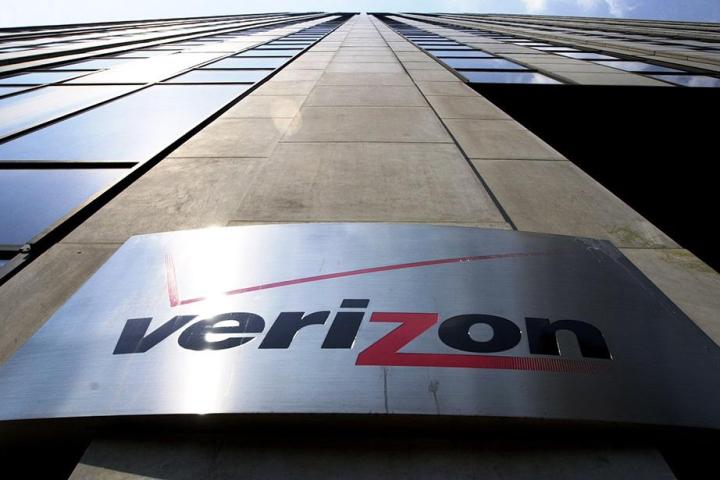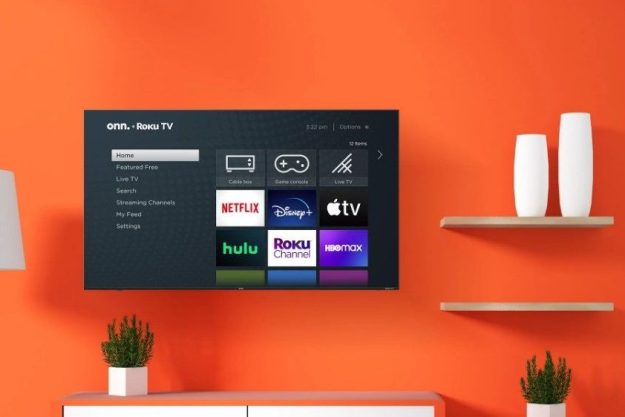
After months of deliberation, a host of suitors, and an asking price of a reported $500 million, it’s official: Intel has sold its OnCue streaming device, and all the goodies that come with it, to front runner Verizon for between $200-$500 million. The over-the-top box that promised to provide “the best Internet television service ever” is now in the hands of one of the biggest telecommunications conglomerates in the world. So what does this mean to you?
First of all, it likely means that Intel’s original plans for the OnCue service to provide a smaller, more independent selection of TV content over an Internet connection, mixed with a dash of streaming apps and mobile delivery, may never come to fruition. Verizon’s fiber-optic cable service, FiOS, offers packages that are every bit as bloated as competitors like Comcast and Time Warner, meaning any cable service tied into the Oncue system will likely be less ala carte, and more business as usual.
The deal could also mean that FiOS is about to get really big, really fast. As of now, Verizon’s relatively small piece of the cable pie, about 5 million customers, is limited to the service’s physical footprint. Like its competitors, the only way to get more subscribers would be to expand licensing deals and infrastructure, or acquire competing cable services. However, Verizon has long been looking into amending its current contracts with content providers to leverage the content for use with the OnCue system. In essence, that would mean the company could deliver its current content over virtually any wireless network, without the barrier of physical infrastructure. And that could change everything.
A huge facet to Verizon’s new plans for cable domination is the aboutface of its previously all-too-cozy relationship with cable competitors, namely the big daddy of the cable world, Comcast. With over 22 million subscribers, and tentative plans to purchase Time Warner Cable, Comcast rules supreme. And until recently, as reported by Gigaom, Verizon was attempting to benefit from Comcast’s long shadow, teaming up with the company to create a new streaming box that could send video from both companies’ mobile streaming apps to a TV, sort of like a proprietary Chromecast. But suddenly, in August of last year, Verizon pulled out.
Now, Verizon is playing its own game, and there’s no telling where it will lead. If the company is able to secure licensing for its OnCue service it could mean that FiOS cable services will be available to any household with an Internet connection, ironically, over the same pipelines owned by Comcast, Time Warner, and other competing cable service providers. Gigaom speculates we could also see cable packages bundled with mobile services, and other Verizon products as an additional incentive to go with FiOS’ new brand of TV.
When reports first started surfacing of Verizon’s interest in purchasing Oncue, consumer advocates were nervous about the company’s close ties with other cable providers, specifically Comcast, which would create a conflict of interest when it comes to healthy competition in the cable industry. However, with its latest win over net neutrality, its massively expansive mobile network, and the possibility of a geographically unbound delivery system for FiOS cable packages, it would seem that Verizon may now be even more powerful as a fully separate entity.
Comcast is reportedly still working on its own internet products, and make no mistake, the king of cable isn’t going anywhere anytime soon. But that’s not necessarily a comfort. While the burgeoning of the streaming age has created whole new opportunities for entertainment, and the cord-cutting crowd has in some ways forced big cable to adapt, these companies still hold all the keys to the castle. And having two Goliaths may not be any better than just one.
We’ll have to wait and see what happens as Verizon builds out its new set-top streaming system, as well as how the other players in the industry will react. But for now, at least, the loss of Intel’s OnCue dream seems like one less David fighting for the little guy.

